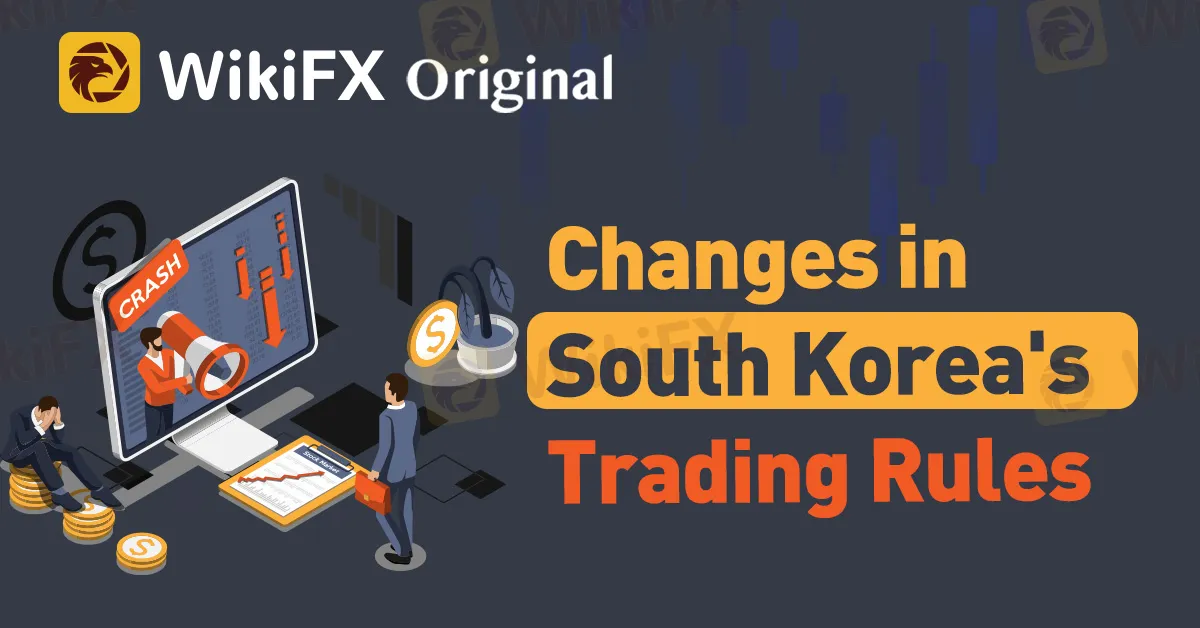简体中文
繁體中文
English
Pусский
日本語
ภาษาไทย
Tiếng Việt
Bahasa Indonesia
Español
हिन्दी
Filippiiniläinen
Français
Deutsch
Português
Türkçe
한국어
العربية
Changes in South Korea's Trading Rules
Abstract:South Korean financial market regulators are implementing stringent regulations on contracts for differences (CFDs) trading to enhance transparency, prevent market manipulations, and address recent incidents of losses and volatility in the market, aiming to restore trust and protect investors.

South Korean financial market regulators are set to introduce comprehensive regulations for contracts for differences (CFDs) trading to ensure transparency and prevent market manipulations, according to reports from various local news outlets. The official announcement comes after eight South Korean stocks experienced continuous declines for nearly a week due to the effects of CFDs trading, resulting in losses exceeding 100 billion won ($77 million) as CFDs accounts were liquidated. The Financial Services Commission (FSC), the Financial Supervisory Service (FSS), Korea Exchange, and the Korea Financial Investment Association have jointly unveiled these measures.
In the current regulatory framework, retail investors are categorized as either institutions if their transactions are processed by a local broker, or foreign investors if handled by a foreign broker, leading to confusion regarding the origin of investments. To address this, Kim So-young, Vice Chairman of the FSC, stated that the financial authorities will revamp CFD trading regulations, aiming to provide investors with accurate information about transactions, including the identification of real investors involved and the level of associated liquidation risks. This transparency will enable investors to make informed and prudent investment decisions.

The South Korean authorities also aim to raise the standards for qualifying as a professional investor, making the criteria more stringent. Additionally, brokers will be required to verify the qualification of professional investors every two years. Furthermore, new regulations will mandate face-to-face authentication for opening CFDs accounts, replacing the previous online authentication method without in-person verification.
Meanwhile, the regulators have recommended temporarily restricting CFDs trading and account opening in the country until the new regulations come into effect. Many local brokers have already halted customers from opening new accounts since the end of April, following the controversy surrounding CFDs trading. The FSS conducted inspections on several CFDs brokers, uncovering cases where accounts were opened without proper identification verification and brokers engaged in misleading advertisements for risky investment instruments. The investigation by the FSS is ongoing, including an examination of a brokerage executive, with plans to expand the scope if necessary.
Kim emphasized that recent unfair transactions have damaged trust in the capital market and dampened investment sentiment. The government and relevant institutions acknowledge their significant responsibility and are committed to swiftly and rigorously resolving the issues at hand, aiming to restore trust and rectify the problems that have arisen.

Disclaimer:
The views in this article only represent the author's personal views, and do not constitute investment advice on this platform. This platform does not guarantee the accuracy, completeness and timeliness of the information in the article, and will not be liable for any loss caused by the use of or reliance on the information in the article.
Read more

Justice Served: Illegal Investment Scheme Ends in RM28 Million Repayment
The Kuala Lumpur High Court has ruled that a Singaporean businessman, Chan Cheh Shin, must return RM28 million to 122 Malaysian investors after the court determined that his investment operations were conducted illegally.

RM900,000 Scammed: The Hidden Dangers of Online Investment Schemes
A 53-year-old factory manager from Malaysia has fallen victim to an online investment scam, losing over RM900,000 of her savings. This case underscores the growing threat of online scams preying on unsuspecting individuals.

Tokyo Police Arrest 4 for Unregistered FX Trading Scheme
Four men in Tokyo were arrested for running an unregistered FX trading operation, collecting over ¥1.6 billion from 1,500 investors.

Doo Group Expands Its Operations with CySEC License
Doo Financial, part of Doo Group, receives a CySEC license, allowing FX/CFD services in Europe. This strengthens its global presence and regulatory standards.
WikiFX Broker
Latest News
Why Even the Highly Educated Fall Victim to Investment Scams?
Warning Against Globalmarketsbull & Cryptclubmarket
BSP Shuts Down Uno Forex Over Serious AML Violations
ACY Securities Expands Global Footprint with South Africa Acquisition
Tokyo Police Arrest 4 for Unregistered FX Trading Scheme
Rupee gains against Euro
Axi Bids AUD 52M to Acquire Low-Cost Broker SelfWealth, Outbidding Competitor Bell Financial
Crypto Influencer's Body Found Months After Kidnapping
US Regulators Tighten Oversight on Bank Anti-Money Laundering Efforts
Doo Group Expands Its Operations with CySEC License
Currency Calculator


